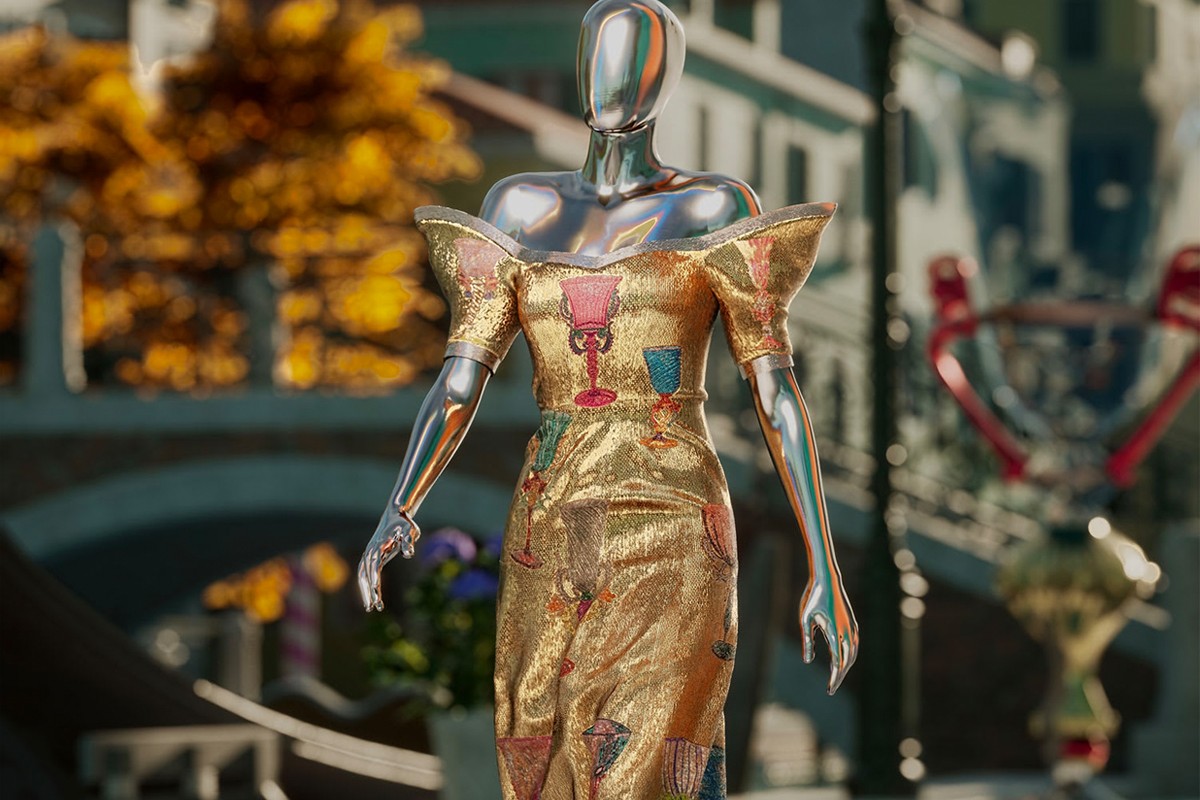When it comes to NFTs, luxury and fashion labels are reigning supreme. A recent study titled “Which Industry has the Most Brand NFTs?” by leading crypto market analyst CoinGecko highlights that the apparel and luxury goods industry has witnessed the most NFT launches since 2020, in comparison to other sectors such as media, entertainment, automobiles, and beverages.
The report examines a series of “traditional brands” across the sector, defined as companies with core businesses that are unrelated to NFTs or cryptocurrency. These labels have an international presence with headquarters in either Europe or the U.S., and are categorized according to MSCI’s widely-recognized Global Industry Classification Standard (GICS)®.
The findings disclosed that 37 percent of apparel and luxury goods companies have launched their own NFT collections since 2020, equating to 19 out of the 51 names researched. This is a leap ahead of the media industry, which came in second place with only nine brands releasing non-fungibles tokens over the past three years. Some of the fashion NFT drops with the highest trading volume to date include Adidas at 47,000 ETH, Nike at 7,502 ETH, Dolce & Gabbana at 4,757 ETH, and Gucci at 4,623 ETH. Most recently added to the list were Puma’s Nitro Token and Nitropass, and Tiffany & Co.’s NFTiff collection which dropped in August this year, albeit to a mixed response across social channels.
CoinGecko’s recent study “Which Industry has the Most Brand NFTs?” highlights how the luxury and apparel sector is storming ahead when it comes to non-fungible drops. Photo: CoinGecko
“In spite of current bear market conditions, many of these ‘traditional’ companies are leveraging NFTs in their brand and marketing efforts, as a way to engage their audience and communities,” COO and co-founder of CoinGecko, Bobby Ong, commented. “It will be interesting to see how this trend holds up next year — and if brands in industries outside of this list unlock NFTs in their marketing strategies.”
As popularity across the online terrain explodes, a number of big names in luxury have been quick to proclaim themselves as early Web3 adopters and unveil their own metaversal ambitions, whether that be through phygital drops, exclusive token-shielded experiences, or partnering with the likes of Roblox and Zepeto on virtual collaborations.
Consumers may remain dubious over the true value of these digital assets, but evidence like this study shows that Web3’s luxury fashion landscape is continuing to level up. The number of brands that entered the metaverse last month alone suggests that this space will only become more saturated over the next quarter and into next year.
Could 2023 be the year that virtual luxury officially finds its footing and gains mainstream appeal? If so, for many brands that have remained hesitant about entering the digital dimensions, the time to dive in might just be now.
Jing Meta, NFT
adidas, coingecko, dolce and gabbana, gucci, luxury fashion, metaverse, NFT, NFT Collabs, nft market, nike, phygital, Puma, roblox, tiffany, Web3
© 2022 Herlar, LLC. All rights reserved. Jing Daily® is a registered U.S. trademark of Herlar, LLC.
Sign up for our daily newsletter to unpack the business of luxury in China. Gain insights, analysis, and breaking news from our on-the-ground reporters.
Necessary cookies are absolutely essential for the website to function properly. This category only includes cookies that ensures basic functionalities and security features of the website. These cookies do not store any personal information.
Any cookies that may not be particularly necessary for the website to function and is used specifically to collect user personal data via analytics, ads, other embedded contents are termed as non-necessary cookies. It is mandatory to procure user consent prior to running these cookies on your website.

